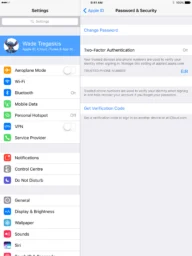The position of many folks – most recently the U.S. Department of Justice – against Apple has drawn an unexpected parallel to that of music pirates in the late 90’s and early 2000’s.
If you’re too young to have personally lived that time, just know this key point: back then, buying or streaming music online was basically not a thing1. You bought CDs in physical stores, or maybe by mail order from an online retailer if you were on the bleeding edge. Or you listened to the radio. Or, you traded pirated copies of CD rips via a plethora of file sharing apps, most famously Napster.
It was the opinion of quite a few people – my younger, more ignorant self among them – that if the music industry wasn’t willing to provide us the songs we wanted by the means we wanted and at the price we wanted, then it was their fault that we pirated their product.
Talk about entitlement.
Computer game pirates had – and seemingly still have – a similar attitude. “$70 for a game? Outrageous! I have no choice but to pirate it!”
Bullshit. You have plenty of choice: you can pay for it, or you can not have it. You’re not entitled to the work of others. That used to be believed, but not anymore.
A similar sense of entitlement seems to underpin many critiques of Apple’s business practices. While I’m no fan of some of Apple’s business practices – because it’s always a shame to see flaws in an otherwise good or promising product – I’m under no delusion that I’m somehow entitled to have Apple’s products at all, let-alone on purely my own terms.
- I think it’s now largely forgotten just how big a deal it was when the iTunes Music Store was announced in April 2003, with five of the biggest western music labels onboard. ↩︎

